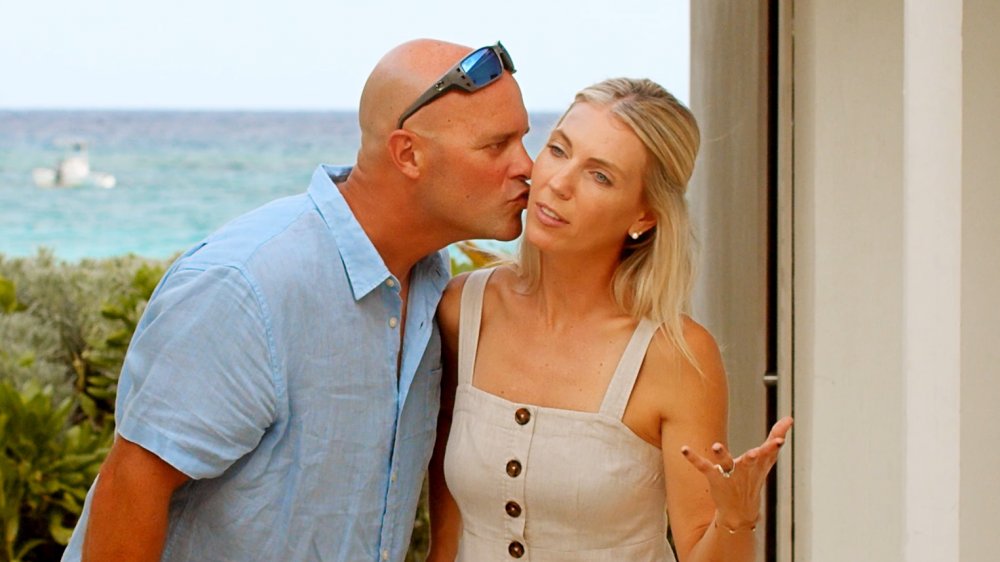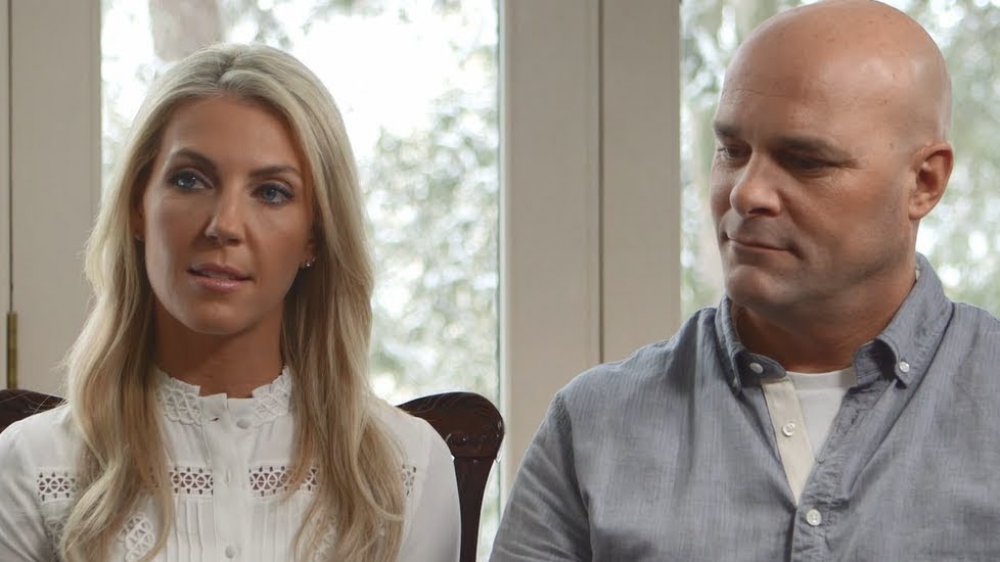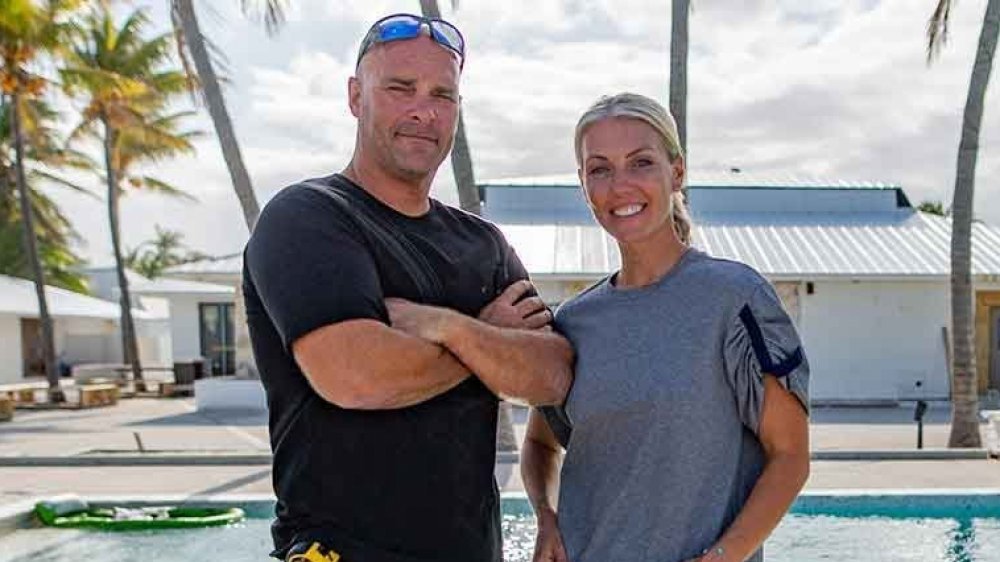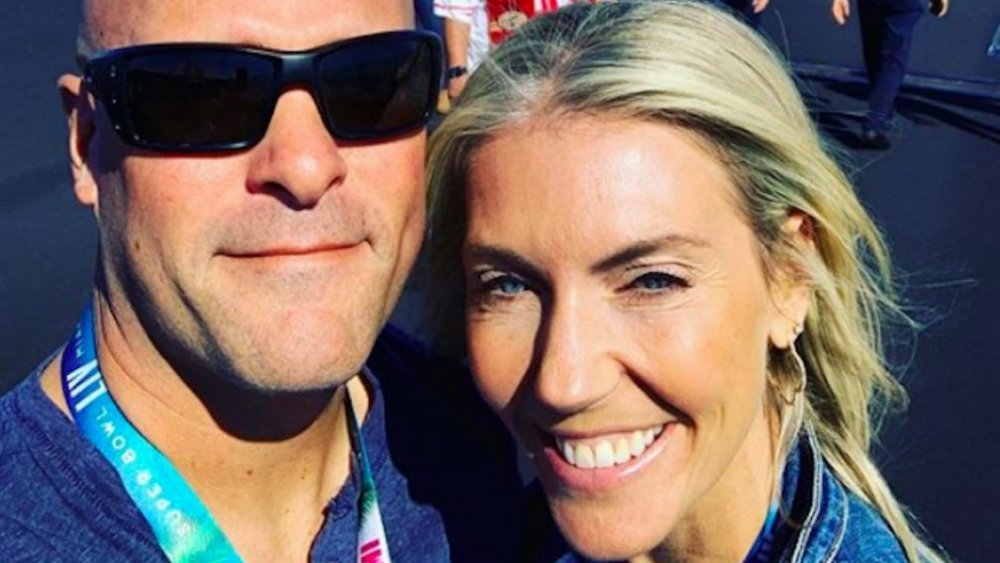Here's How Much The Baeumlers Really Spent On HGTV's Renovation Island
HGTV's latest much-watch show combines elements of its most popular home renovation staples with the aspirational draw of paradise. Renovation Island takes place almost entirely on sun-soaked beaches rather than in a busy suburban neighborhood, making it an instantly attractive TV option, particularly to those quarantined at home during the summer months. As the network notes, the series shows a major renovation taking place entirely on an island in the Bahamas.
Husband and wife duo Bryan and Sarah Baeumler are the stars of Renovation Island. The couple actually holidayed in the Bahamas previously for a family vacation and, after visiting the tiny island of South Andros, fell head over heels for the idyllic location. The Baeumlers couldn't get the place out of their heads, ultimately deciding to move there and renovate an abandoned, sixties era holiday resort they'd spotted during their first visit. Renovation Island shows them trying to make that dream come true. So how much did they spend on this ambitious project?
Renovation Island was a dream project for the Baeumlers
The HGTV series follows the Baeumlers on their exciting quest to turn their unique find into a five-star boutique hotel, restoring and revitalizing the beachfront property with a personal emphasis on environmental sustainability, which is a key issue for the couple. Bryan is a licensed contractor while Sarah handles the design elements, making them a total dream team to tackle their dream project.
The couple transformed the 10-acre property into an expansive, luxury holiday destination complete with 18 spacious rooms, 22 oceanfront villas, and a whole assortment of gorgeous amenities, over just six months. The first season of Renovation Island finds them going to incredible lengths to get the job done, with a swollen budget struggling to accommodate setbacks including rusted generators and termite damage. "Everyone said we were crazy. But our hearts said 'yes' — this is the right thing to do," Sarah enthused.
The Baeumlers spent a massive amount on their dream
If you're wondering just how much their ambitious project set them back, prepare to be amazed. First, The Wrap confirmed that, although the hotel opened back in February and was booked through June, the ongoing coronavirus pandemic meant they had to close unexpectedly for a short while. Thankfully, "In our financials, we had planned that the first year, generally, you're not gonna run at a profit, so we've had protections in place and we talked to our staff there," Bryan advised.
They own 100 percent of the hotel so, as Bryan puts it, "We're in pretty deep." The Baeumlers initially bought the resort for $2 million, intending to put $4 million into renovating it. However, Bryan confirmed, "We more than doubled that before we opened the doors." That puts their investment thus far at a whopping $10 million. A planned re-reopening is scheduled for October/November, though, so hopefully the couple will be on their way to recouping those costs soon.
Renovation Island certainly didn't bankrupt the Baeumlers
The Baeumlers may have spent an eye-watering amount on making their dream come true, but it was definitely all worth it in the end. To date, Celebrity Net Worth puts their combined assets at a whopping $20 million which, thankfully, is far in excess of what they spent bringing their luxury Bahamian vacation destination to life. The ambitious couple clearly know the value of a dollar, telling RBC Royal Bank in an interview that they aim to instill that same smart attitude toward money in their kids.
"Understanding the value of things in the short term versus the long term is important. And if you save and raise the money for something you really want, you develop a pride of ownership," Bryan advised of their approach, which makes sense considering he and Sarah invested so much in their island resort. Working for it means more, too, as Sarah added, "Giving your kids some measure of responsibility can teach them the concept of working for money. And when they work for cash — or for something they want — there is more weight and significance attached to the item purchased."



